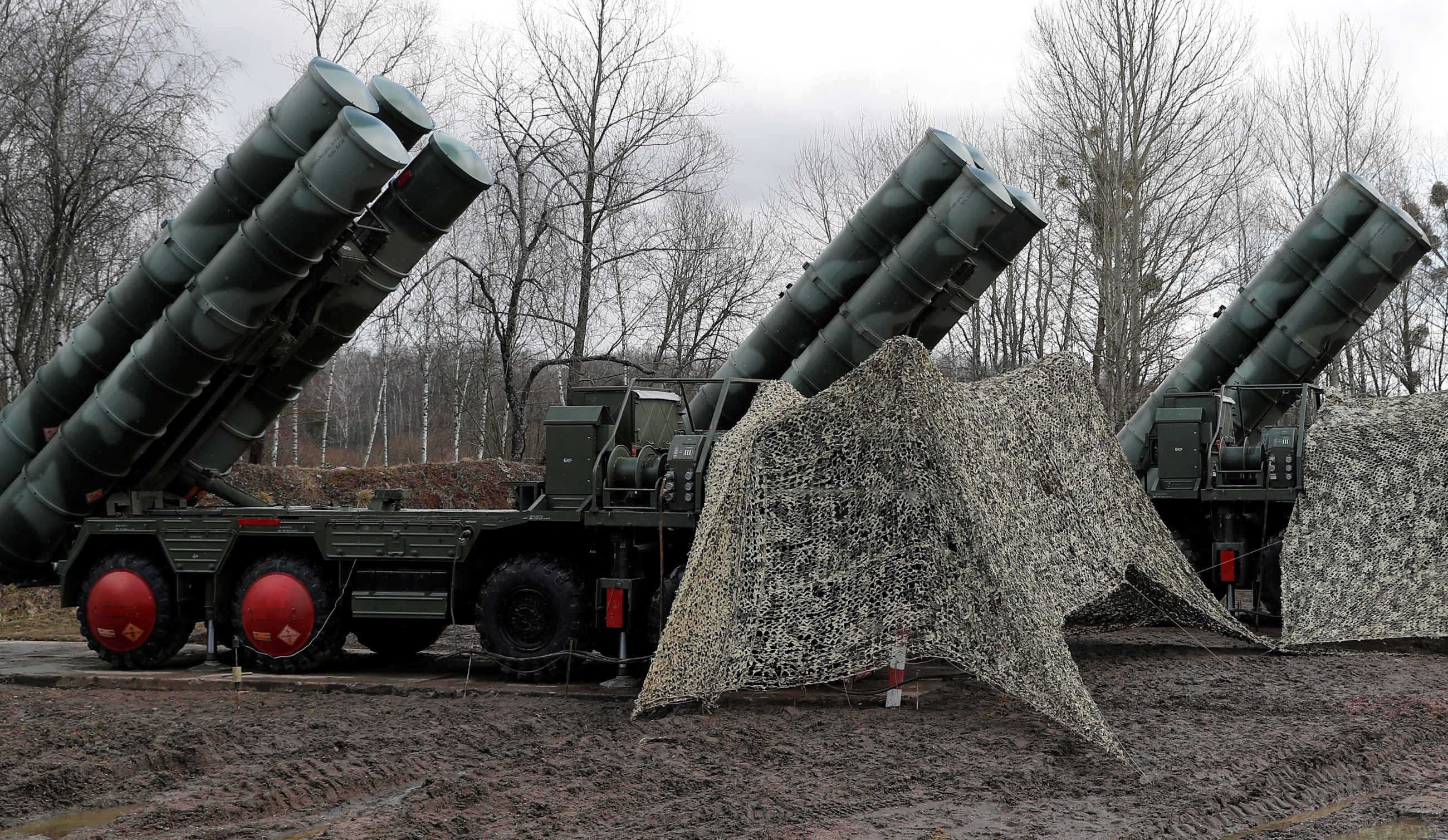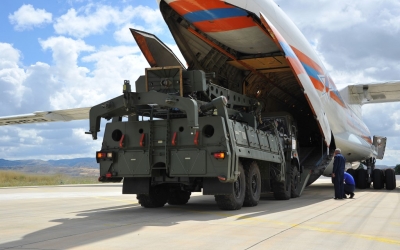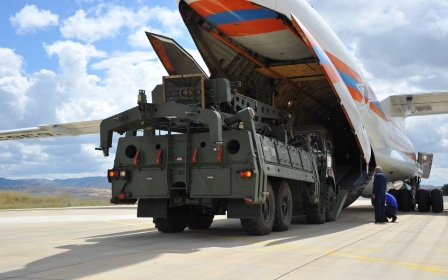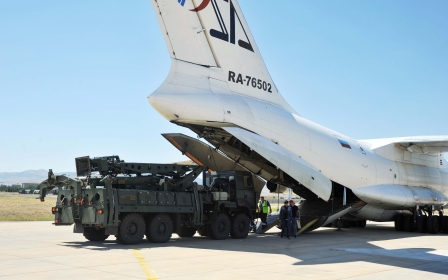Turkey: US sanctions over S-400s to be mandatory in new defence bill

Turkey's lira slipped on Friday after US lawmakers included mandatory Turkish sanctions in a defence spending bill that moves Washington a step closer to punishing its Nato ally for buying Russian S-400 missile defence systems last year.
The final version of the $740bn annual US defence spending legislation would oblige the White House to select from a list of sanctions over the S-400s, which Washington says are incompatible with Nato operations.
US President Donald Trump, who is set to step down next month, has said he will veto the 4,517-page National Defence Authorisation Act, or NDAA, over separate provisions.
But he will need support in Congress and it would be the first such veto in nearly 60 years, Reuters reported.
Russia delivered the S-400 ground-to-air systems last year and Turkey has tested them as recently as October.
Ankara says they would not be integrated into Nato systems and pose no threat, and it has called for a joint working group.
The bill also includes authorisation for the US military to use the six F-35 aircraft that had been accepted by Turkey before the country was expelled from the F-35 programme over the S-400 purchase.
The threat of sanctions has weighed on the lira currency, which hit a series of record lows this year and was down 0.4 percent against the dollar on Friday morning.
Sanctions could harm a Turkish economy already struggling with a coronavirus-induced slowdown, double-digit inflation and badly depleted foreign reserves.
'Incredibly proud'
President-elect Joe Biden is expected to be tougher on Turkey than Trump, who had warm ties with President Recep Tayyip Erdogan, despite growing hostility among US lawmakers towards Turkey's increasingly aggressive foreign policy.
The defence bill includes sanctions under the Countering America's Adversaries Through Sanctions Act (CAATSA), which are designed in part to deter cooperation with Russia.
The US president would select from a list of mild to harsh possible sanctions.
"If Trump chooses from among the lighter sanctions I think given the global risk appetite we still can see a benign performance in the lira," one Turkish trader told Reuters.
Senate foreign relations committee ranking member Bob Menendez was among lawmakers praising the move.
“Incredibly proud to have helped secure inclusion of a provision in the NDAA to do what President Trump refused to do: Officially determine on behalf of the U.S. [government] that #Turkey took delivery of Russian S-400 defence systems and therefore will be sanctioned under existing law,” the Democrat said in a tweet.
'Unjust accusations'
US Secretary of State Mike Pompeo used his final Nato meeting this week to sharply criticise Turkey, saying its purchase of the Russian weapons system was "a gift" to Moscow, five diplomats and officials told Reuters.
At the confidential foreign ministers' video conference on Tuesday, Pompeo said Turkey was undermining Nato's security and creating instability in the eastern Mediterranean in a dispute with Greece and non-Nato member Cyprus over gas resources, said the diplomats and officials, who asked not to be named as the discussions were confidential.
While the US and other Nato allies have long been at odds over Turkey's military intervention in Syria and Libya, Pompeo's remarks underscored the depth of tensions at the Western alliance, which many experts say dangerously weakens it.
Pompeo, who leaves office in January as Trump's term ends, also told Turkish foreign minister Mevlut Cavusoglu that Turkey was wrong to send paid Syrian fighters to Libya, as the US Department of Defence concluded in a report in July, and also to the conflict in Nagorno-Karabakh.
That prompted further chiding of Turkey by allies in the meeting, including France, Greece and even tiny Luxembourg, as well as defiant counter-accusations from Cavusoglu, said the diplomats.
The meeting tone was described as "measured" but "more confrontational" than is usually the case at Nato.
Turkey's Cavusoglu said on Thursday he could not comment on a confidential meeting.
"I just outlined the differences between the two countries and outstanding issues", he told a public event.
"We had to purchase [a weapons system] from Russia because we could not from our allies," he added.
Turkish sources with knowledge of the meeting said that Pompeo made "unjust accusations" and that there were was no united front against Turkey.
Turkey was also open to talks with Greece in the eastern Mediterranean with no preconditions, they said.
Middle East Eye delivers independent and unrivalled coverage and analysis of the Middle East, North Africa and beyond. To learn more about republishing this content and the associated fees, please fill out this form. More about MEE can be found here.




